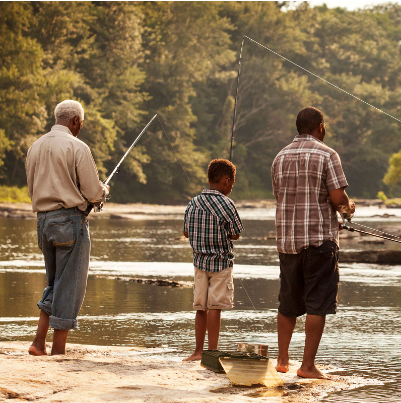Are you ready to dive into the fascinating world of Fiskning? Whether you’re a seasoned angler or a curious beginner, this ancient fishing technique has a rich history and offers an exciting opportunity to connect with nature. Join us as we explore everything you need to know about Fiskning, from its origins to the best places in the world to give it a try! Let’s cast our lines and reel in some adventure together.
What is Fiskning?
Fiskning, a traditional Scandinavian fishing method, is more than just casting a line into the water. It’s an art form that involves using simple tools to catch fish sustainably and respectfully. The term “Fiskning” itself comes from the Swedish word “fiska,” which means to fish.
Unlike modern fishing techniques that rely on advanced technology, Fiskning emphasizes patience, skill, and harmony with nature. Anglers typically use handcrafted wooden rods, natural bait like worms or insects, and handmade lures to attract fish.
One of the defining features of Fiskning is its focus on mindfulness and connection with the environment. Practitioners often find solace in the rhythm of casting their lines and waiting for a bite while surrounded by the beauty of nature.
Fisking offers not only a way to catch fish but also an opportunity to slow down, appreciate the simplicity of life, and cultivate a deeper bond with the natural world.
History and Origins of Fiskning
Fiskning, a traditional Scandinavian fishing technique, has deep roots in the rich history of Nordic cultures. Dating back centuries ago, fishing was not only a means of sustenance but also an integral part of the community and cultural traditions.
In the olden days, fishing was practiced by local fishermen using simple tools like rods and nets to catch fish in rivers and lakes. The skillful art of fishing was passed down through generations, preserving its heritage and techniques.
As time progressed, fisking evolved from being solely for survival to becoming a recreational activity enjoyed by people worldwide. Today, enthusiasts flock to pristine waters around the globe to experience the thrill of catching their fish using traditional or modern methods.
The origins of fishing are deeply intertwined with nature and humanity’s connection to it, making it more than just a hobby but a reflection of our enduring bond with the environment.
Popular Types of Fiskning Techniques
When it comes to fishing, there are various popular techniques that anglers use to catch fish. One common method is spin fishing, where anglers cast out a lure and reel it back in to entice fish to bite. Fly fishing is another beloved technique that involves using artificial flies as bait on the end of a fly rod.
Trolling is a technique often used in deep waters where anglers drag baited lines behind a moving boat to attract fish. Jigging, on the other hand, involves vertically moving a weighted lure up and down in the water to mimic prey movement.
For those looking for a more relaxed approach, bobber fishing can be enjoyable. Anglers simply attach their bait below a floating bobber and wait for it to submerge when a fish bites. These are just some of the popular techniques you can explore while Flying around the world!
Essential Equipment for Fiskning
When it comes to fishing, having the right equipment can make all the difference between a successful day on the water and coming back empty-handed. One essential piece of gear is a reliable fishing rod. Choose one that suits your fishing style and target species. A sturdy reel to match your rod is equally important for smooth casting and reeling in your catch.
Don’t forget about the fishing line – opt for a high-quality, appropriate weight line that won’t break easily. Hooks are another key component; make sure you have an assortment of sizes to accommodate different fish species. Sinkers or weights help your bait reach the desired depth, while floats keep it suspended at the right level in the water.
A tackle box stocked with various lures, baits, swivels, and other accessories will ensure you’re prepared for any situation. And let’s not overlook essentials like sunscreen, polarized sunglasses to reduce glare on the water, a hat for sun protection, and comfortable clothing suitable for spending hours outdoors.
Best Places to Go Fishing in the World
When it comes to finding the best places for fishing around the world, you are spoiled for choice. Scandinavia is renowned for its pristine lakes and rivers, offering a tranquil setting for fishing enthusiasts. The crystal-clear waters of Norway or Sweden provide an ideal backdrop for a peaceful day of fishing.
If you’re looking for a more exotic experience, consider heading to New Zealand with its stunning landscapes and abundance of fish species. The South Island in particular boasts some of the best spots for both beginner and experienced anglers alike.
For those seeking adventure, Alaska offers unparalleled opportunities for fishing in its wild and remote settings. Whether you prefer fly-fishing in mountain streams or deep-sea fishing off the coast, Alaska has something to offer every angler.
The tropical waters of Belize are also a popular destination for fishing enthusiasts looking to reel in some impressive catches such as tarpon and bonefish. With its vibrant marine life and picturesque scenery, Belize is truly a paradise for fishing aficionados.
No matter where you choose to go fishing, each location offers its unique charm and challenges that will make your fishing experience unforgettable. Pack your gear, pick your destination, and get ready to cast your line into some of the most beautiful waters on Earth.
Benefits of Fiskning for Mental Health
Fiskning, also known as fishing, offers more than just the thrill of catching a fish. Engaging in this activity can have significant benefits for mental health.
Being out in nature, surrounded by the calming sounds of water and fresh air, can be incredibly soothing and grounding. The peacefulness of the environment allows for a break from the stresses of daily life, promoting relaxation and reducing anxiety.
The act of focusing on baiting your hook, casting your line, and patiently waiting for a bite can help to quiet a busy mind. It encourages mindfulness and living in the present moment – essential practices for managing stress and improving mental well-being.
Additionally, successfully catching a fish can boost confidence and self-esteem. It provides a sense of accomplishment that can uplift mood and increase feelings of satisfaction.
Fisking is not just about catching fish; it’s about connecting with nature, practicing mindfulness, and reaping the mental health benefits that come with it.
Tips for Beginners to Get Started with Fiskning
Are you new to the world of fishing and eager to get started on your fishing journey? Here are some tips to help beginners find their footing in this exciting activity.
First and foremost, familiarize yourself with the local regulations and rules regarding fishing in the area where you plan to fish. Understanding these guidelines will ensure a smooth and legal experience.
Invest in quality equipment suited for beginners. A basic rod, reel, line, hooks, and bait are essential tools for a successful fishing outing. Don’t forget essentials like sunscreen, sunglasses, and appropriate clothing for comfort.
Learn about different fishing techniques such as spinning, fly fishing, or trolling. Each method has its unique approach that can enhance your chances of catching fish.
Practice patience and persistence when out on the water. Fishing requires time and effort – don’t get discouraged if you don’t catch anything right away.
Joining a local angling club or taking lessons from experienced fishermen can provide valuable insights into the art of fisking. Networking with fellow enthusiasts can also lead to new friendships and shared experiences on the water.
Remember that fishing is not just about catching fish; it’s also about enjoying nature’s beauty and tranquility while honing your skills as an angler. Soak in the sights and sounds of the outdoors while appreciating each moment spent by the water’s edge.
Sustainable Practices in Fiskning
Sustainable practices in fisking are crucial for preserving aquatic ecosystems and fish populations for future generations. By adhering to responsible fishing techniques, anglers can help maintain the delicate balance of marine life.
One key aspect of sustainable fishing is practicing catch and release whenever possible. This involves releasing the fish back into the water unharmed after catching them, allowing them to grow and reproduce.
Using barbless hooks can also minimize harm to fish during catch and release, making it easier to safely return them to their habitat. Additionally, choosing biodegradable or non-toxic bait helps reduce pollution in water bodies.
Being mindful of local regulations regarding fishing seasons, size limits, and quotas is essential for sustainable fishing practices. Respecting these rules ensures that fish populations remain healthy and abundant in the long run.
Adopting sustainable practices in fishing not only benefits the environment but also allows anglers to continue enjoying this recreational activity responsibly.
Unique Cultural Traditions and Festivals Surrounding Fiskning
Embarking on a fishing journey not only connects you with nature but also immerses you in unique cultural traditions. In Scandinavia, Fiskning is not just about catching fish; it’s a way of life deeply rooted in Nordic heritage.
In Norway, the annual Lofoten Fishing Festival celebrates the rich history of fishing in the region. Fishers from all over gather to partake in competitions and festivities that honor their seafaring ancestors and the bounty of the sea.
In Japan, Tsuri Odori Matsuri is a captivating festival where fishermen dance joyously to celebrate a successful catch. The rhythmic movements mimic the ebb and flow of the ocean, creating a mesmerizing spectacle for spectators.
Whether it’s dancing fishermen or ancient rituals passed down through generations, Fiskning brings people together to celebrate traditions that have shaped communities for centuries.
Conclusion
Fisking is not just a hobby; it’s a way of connecting with nature, unwinding from the stresses of daily life, and immersing yourself in an ancient tradition that spans cultures worldwide. Whether you’re a seasoned angler or a beginner looking to dip your toes into the world of fishing, fishing offers something for everyone.
From its rich history to the diverse techniques and equipment used, fishing has evolved into more than just catching fish. It’s about fostering mental well-being, preserving natural resources through sustainable practices, and celebrating unique cultural traditions that bring communities together.
So next time you feel the urge to escape the hustle and bustle of modern life, consider grabbing your gear and heading out for a day of fishing. Who knows what adventures await as you cast your line into the waters and immerse yourself in this timeless pastime? Embrace the serenity that comes with being surrounded by nature, breathe in the fresh air, and revel in the simple joy of waiting for that telltale tug on your line – because in those moments lies the true essence of fishing.






